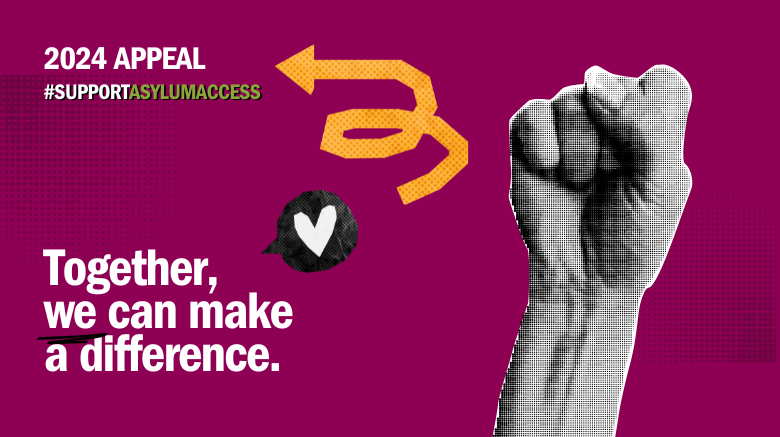
Every day, refugees around the world are stepping up—not just as survivors, but as leaders who are actively shaping their futures and responding to their community needs. Asylum Access has been proud to work alongside displaced people and their host community allies to advance their leadership and advocate for systemic changes that uphold their human rights. But the road ahead is long, and the challenges they face are deeply rooted in systemic issues that need our urgent attention.
In countries like Thailand, Malaysia, Mexico, and many others where we have partnerships, refugees face complex barriers: they often live in precarious legal frameworks, with limited or no access to fundamental human rights like freedom of movement, healthcare, education, or the right to work. Our national organizations are tirelessly working on the ground to protect refugees’ rights, providing direct support to individuals and driving national-level policy change in collaboration with local and proximate actors. At the global level, we amplify these efforts and seek systemic change across the refugee response sector. By being rooted locally and connected globally, we strive to ensure that forcibly displaced individuals are not only able to meet immediate needs but also have the opportunity to shape lasting solutions.
At Asylum Access, we are transforming the sector by enabling forcibly displaced communities to lead and shape their futures. Through equitable partnerships, meaningful participation, and localized protection, we are creating opportunities for displaced individuals to drive sustainable change—redefining how protection and advocacy are approached.
Our Equitable Partnerships Accountability Toolkit, recognized by UNHCR as a Good Practice, ensures collaboration between local actors and international organizations is based on trust, transparency, and shared leadership. To date, nine international NGOs and seven local partners are piloting the toolkit, working with us to refine it for broader sector-wide use as a way to enable meaningful refugee participation through partnership.
Meanwhile, initiatives like our Localized Protection Position Paper redefine what it means to protect forcibly displaced communities. We advocate for greater funding for local networks of protection actors—including host communities and forcibly displaced leaders—so that policies translate into tangible rights in law and practice. This includes ensuring individuals can live, work, access healthcare and education, and move freely, free from fear of exploitation, racism, and isolation.
However, there are still many hurdles to overcome. Your support is vital to this mission. With your gift, we can continue advancing refugee leadership and participation, ensuring the rights of forcibly displaced people are upheld globally. Together, we can create a world where refugees are not just heard, but are agents of change in building a more just, inclusive future.
Donate today to help us shift power to local actors and foster a world where displaced individuals can freely live, lead, and transform their communities.

Here are just a few examples of what we have been able to achieve in our global efforts over the last year:
- We launched our Equitable Partnerships Accountability Toolkit, equipping our sector with practical tools to overcome structural inequity.
- We are co-leading 3 global initiatives around equitable partnerships, meaningful refugee participation, and refugee leadership, driving forward global commitments on these areas from rhetoric to reality.
- We co-organized the R-Space at the Global Refugee Forum, a refugee-led alternative event space focused on refugee-centered ideas and discussions

We’re transforming the sector’s promises on refugee leadership, equitable partnerships, and localized protection into real action. With bold tools and leadership in global initiatives, we’re shifting power to refugees and creating true allyship with them
Deepa Nambiar, Director of Partnerships at Asylum Access

The process of piloting the EP Toolkit created a much-needed space for me to reflect deeply, and engage in honest conversations with partners and stakeholders. We must be the change we want to see. Having engaged with Asylum Access over the years in different capacities, it is always incredibly motivating to work with people who are committed to continuous learning and who lead by example to ensure that as a sector we truly embody the change we want to see.
Lynette Lam, Executive Director at Justice Centre Hong Kong
Asylum Access has been breaking ground with their work on equitable partnerships in refugee protection spaces. Across national and global levels, Asylum Access is a key partner of the International Detention Coalition, and has been working with us for years towards ending immigration detention and promoting alternatives. I have been happy to support them in the trialing and development of the EPSAT – Equitable Partnerships Self-Assessment Tool. The EPSAT tool encourages critical reflection and evaluation of partnerships with local actors, and meaningfully progresses the shifting of power to local organizations and communities.
Hannah Jambunathan, Asia Pacific Programme Officer at the International Detention Coalition




